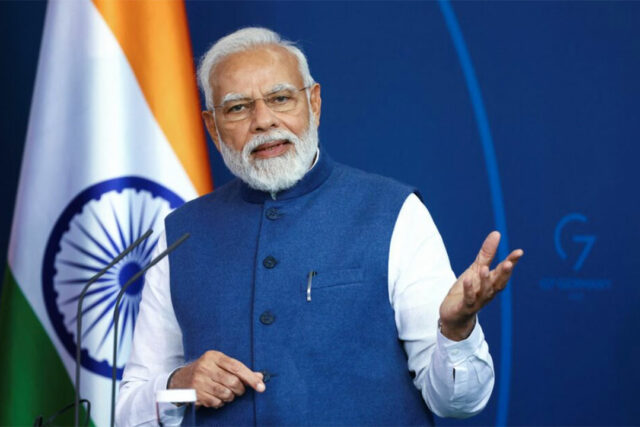Constitutional provision disallowing full foreign ownership of ad agencies a non-issue
Resolution No. 6 of both Houses of Congress asks the House of Representatives and the Senate for the revision of Article XII, Section 11; Article XIV, Section 4, Paragraph 2; and Article XVI, Section 11, Paragraph 2 of the Constitution which all stipulate that public services should exclusively be owned by Filipinos.
This column addresses only the issue that is Article XVI, Section 11, Paragraph 2 which says:
“The advertising industry is impressed with public interest, and shall be regulated by law for the protection of consumers and the promotion of the general welfare.
“Only Filipino citizens or corporations or associations at least 70 per centum of the capital of which is owned by such citizens shall be allowed to engage in the advertising industry.”
In effect, Resolution No. 6 asks for the removal of the provision disallowing full foreign ownership of advertising entities, better known as advertising agencies, from the Constitution. The reason advanced by the proponents of the resolution is that the provision deters foreign direct investments, industry growth, and creation of more jobs.
Deliberations on the provision at issue would be a waste of time. No constitutional convention is necessary just to amend the provision. President Ferdinand Marcos, Jr. can issue an executive order allowing full foreign ownership of advertising agencies as he did for companies in the telecommunication industry.
I would like to point out though that there was no restriction on full foreign ownership of advertising agencies from 1945 to 1972, yet there was no influx of foreign agencies in the country. J. Walter Thompson merely bought an existing agency, Philippine Advertising Services (PhilAds). Compton Advertising initially partnered with Ace Advertising, gradually taking control of it.
In 1945, Harry Lee, just discharged from the US Army, put up Philippine Advertising Services or PhilAds. Lee had worked for J. Walter Thompson (JWT) before the war. One of the agency’s first clients was Philippine Manufacturing Co. (PMC), the Philippine subsidiary of Procter & Gamble.
In the mid-1950s, the pressure from the worldwide clients of JWT to open an office in Manila was mounting. So, JWT offered to buy PhilAds, which Lee had styled after JWT. Lee grabbed the offer. PhilAds became J. Walter Thompson, the first Philippine advertising agency owned wholly by a foreign agency.
When JWT acquired PhilAds, its client PMC began to look for another agency as JWT is known to be Unilever’s agency worldwide. PMC feared that Unilever would eventually ask JWT Manila to service the Philippine Refining Co. (PRC), Unilever’s Philippine subsidiary.
PMC found Ace Advertising, which was originally the advertising department of the Araneta Group of Companies. All new brands PMC introduced from 1958 onwards were assigned to Ace.
What PMC feared happened in September 1963, by which time PMC had changed its name to Procter & Gamble (P&G). Unilever did ask JWT New York to tell JWT Manila to resign the P&G account and to take on its Philippine subsidiary, PRC.
Thus, Ace Advertising got the entire P&G business. One of P&G’s agencies in the US was Compton Advertising. In 1964, Compton bought 30% of Ace. It eventually took control of Ace.
Only McCann-Erickson of the many New York-based advertising agencies set up its wholly owned office in the country. The other foreign agencies — LINTAS, Foote Cone & Belding, Leo Burnett, Grey, Ted Bates, Publicis, Batten Barton Durstine & Osborn, Doyle Dane Bernbach — opted to be minority partners with local agencies instead of opening their wholly owned offices.
If McCann created new jobs, they were only of the rank-and-file category — accounting clerks, secretaries, and gofers. As for the account managers, copywriters, artists, and other creative people, McCann pirated them from other agencies. No university or college during that period offered courses in advertising crafts like copywriting, commercial production, etc. Those crafts were learned on the job or by apprenticeship. A new agency had to lure people from other agencies to be functional immediately. That is what McCann did in the beginning.
McCann-Erickson Philippines was established by Dick Guersey, who was originally brought into the country by Don Andres Soriano to head his newly formed agency, Philippine Advertising Counselors (PAC). One of the accounts of the new agency was Coca-Cola. When Don Andres sold the agency in 1961, Guersey resigned from PAC. He then flew to New York to persuade McCann-Erickson to open an office in Mania with him as president.
When McCann opened an office in Manila — actually in Makati — Guersey took the Coca-Cola account, as well as the whole team handling the account, away from PAC. He also took away Philippine Packing Corp. (a subsidiary of Del Monte California) and Carnation, both McCann worldwide clients, from small Filipino-owned agencies. The two agencies nearly closed shop due to the loss of their premier accounts.
McCann threatened to get Filipro (a subsidiary of Nestlé, another McCann aligned company) from one of the bigger Filipino-owned agencies. The Filipino owner was well connected with the powers that be and very influential in the advertising industry. He was a rabid nationalist, too. Less aggressive in the pursuit of Filipro, McCann got only a piece of the Filipro business.
When McCann started eyeing ESSO, Pete Teodoro started to talk about nationalizing the advertising industry. Teodoro, a former public relations officer of Elizalde y Cia, opened the Philippine Promotion Bureau (Philprom) in 1945, the first strictly Filipino advertising agency. As to be expected, its first client was Elizalde y Cia.
Philprom subsequently landed ESSO, the giant oil company. “Put a tiger in your tank” was its advertising tagline. Having been a public relations man, Teodoro had good connections with the press. He also got staunch support from Filipino owners of agencies who had been “robbed” of their principal clients by a foreign agency.
The call for nationalization grew so loud that in 1972, the Board of Investments succumbed to the pressure, handing down the rule that all advertising agencies be 70% Filipino owned. The rule didn’t apply to JWT, Ace Compton, and McCann because they were already foreign owned before the rule was set. Rules do not apply retroactively.
However, the rule was inserted into the 1987 Constitution. That is Paragraph 2 of Section 11 of Article XVI. It looks like the provision was sneaked in as Article XVI is third to the last article of the Constitution. And Article XVI is about general provisions.
A provision mandating advertising agencies to be at least 70% owned by Filipinos is very specific. It is therefore out of place under General Provisions. In fact, such a provision is out of place in the Constitution. Ours is the only Constitution in the world that has a provision on advertising agencies. As they say, “Only in da Pilipins!”
Oscar P. Lagman, Jr. was an account group director at J. Walter Thompson, a consultant to J. Romero & Associates, and the founding executive director of the Philippine Board of Advertising.

















